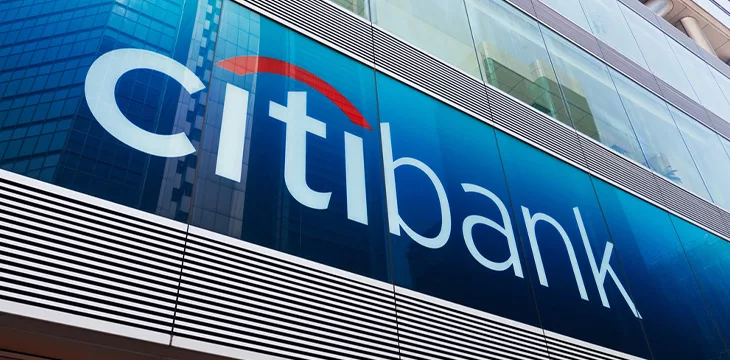|
Getting your Trinity Audio player ready...
|
One of the largest banks in the U.S. has conducted a simulation in which blockchain was used to tokenize a private equity fund, which could pave the way for greater institutional blockchain adoption.
Citibank (NYSE: C) partnered on the proof of concept with New York exchange traded fund (ETF) firm WisdomTree and Wellington Capital, a Boston-based investment manager with over $1.4 trillion in assets under management.
Wellington created a hypothetical private equity fund, which Citi tokenized using blockchain technology. The banking giant encoded the fund distribution rules into the tokenized fund through smart contracts, directing the token splitting and automatically transferring proceeds to hypothetical WisdomTree clients.
Under the simulation, Citi proved that asset managers can tokenize their funds on the blockchain in a controlled environment, noted Puneet Singhvi, the bank’s head of digital assets. It also proved that tokenized funds could remain legally compliant and compatible with existing banking systems, providing a seamless transition for legacy institutions.
Additionally, the three companies explored how the private fund tokens can be used as collateral in an automated lending contract. The digital assets unit at the Depository Trust & Clearing Corporation was also involved in this simulation, which Singhvi says yielded positive results.
Citi, America’s third-largest lender, will rely on the test results to evaluate whether it should start offering related services in the coming weeks, Singhvi added.
Nisha Surendran, who leads the emerging solutions team at Citi’s digital asset unit, says blockchain could introduce efficiency into the $6 trillion private equity industry.
“We believe that by testing the tokenization of private assets, we are exploring the feasibility to open-up new operating models and create efficiencies for the broader market,” she noted.
Citi continues to lead the American banking industry in exploring blockchain solutions. Last September, the bank became the first digital custodian for BondbloX, the world’s pioneer fractional bond exchange, which allows investments as low as $1,000. The bank also partnered with SWIFT and other top banks on a blockchain interoperability pilot that sought to unlock tokenization in the banking sector.
Watch: Tokenizing Gold and Stable Coins

 08-17-2025
08-17-2025 





